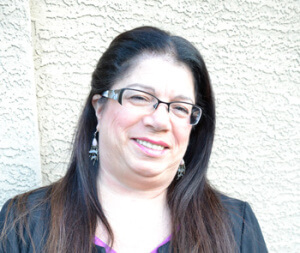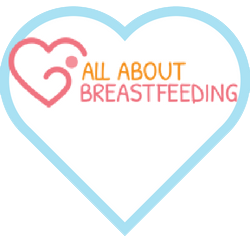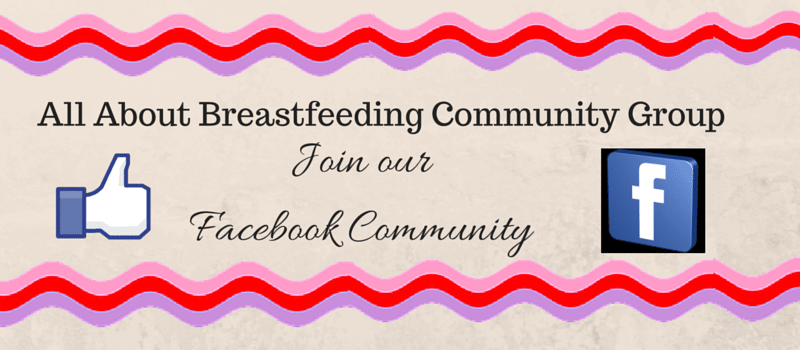
Today’s Podcast
Episodes 400
” Absolutely. I think when mothers sit down with their babies if they have that idea in their head… I’m sitting down to breastfeed and it doesn’t go well then the mothers feel like a failure right away. But if they sit down with the expectation that we are just going to play, we are just going to practice, than practice makes progress. I don’t Her Bio:think it is ever perfect. I’m not looking for perfection, I’m looking for progress. I’m looking for lick and sniff and if you want your baby to breastfeed, gotta get them in the kitchen and your kitchen is at your breast. so playtime, playtime playtime. “
Her Bio:
 Karen Lasby leads a specialized nursing team in post-discharge follow-up of extremely premature infants and their families. She has presented locally, nationally, and internationally on the topics of premature babies, neonatal oral feeding, and NICU-to-home transition. She was the keynote closing speaker at the well known GOLD conference in June of this year. An educator for nearly thirty years, Karen has taught, written instructional material, and produced online neonatal nursing courses. Karen has served on the boards of the Canadian Association of Neonatal Nurses and the Council for International Neonatal Nurses. Karen’s passion is ensuring premature babies enjoy feeding with as much breastmilk as possible.
Karen Lasby leads a specialized nursing team in post-discharge follow-up of extremely premature infants and their families. She has presented locally, nationally, and internationally on the topics of premature babies, neonatal oral feeding, and NICU-to-home transition. She was the keynote closing speaker at the well known GOLD conference in June of this year. An educator for nearly thirty years, Karen has taught, written instructional material, and produced online neonatal nursing courses. Karen has served on the boards of the Canadian Association of Neonatal Nurses and the Council for International Neonatal Nurses. Karen’s passion is ensuring premature babies enjoy feeding with as much breastmilk as possible.
Her Background:
Karen grew up in a Province of Canada. She is the oldest of 3 sisters and describes herself as the “wisest” of all 3 sisters! She met and married an engineer from the campus where she attended nursing school. Together they moved the Province of Alberta and are raising 2 children and 4 dogs. She always had a passion for the smallest and most fragile babies. In her work as a Neonatal Intensive Care Nurse she worked with many premature babies and their families. She began to see a pattern at the time of discharge. Parents were afraid as they thought about the transition from the NICU to their home.
She got her Masters Degree with the focus on these vulnerable families and their babies. She developed a new community based programs to meet the needs of theses families. She has been involved in this passionate work for over 20 years.
Her Breastfeeding History:
Many years ago there was not much help for breastfeeding mothers. She had an easy time breastfeeding her first baby. With her second baby, she had struggles with health issues which negatively affected her milk volume, so she did a lot of pumping. She had
Two pearls of wisdom:
Playtime – play at the breast. When latching was not going well, I was not encouraged to go in there and play and have them hang out at the breast. If latching did not work, she relied heavily on the pump and abandoned offering the breast.
Getting help – She may not have had help years ago, but there is plenty of help available now. Don’t wait until you feel like it will get better at some point, ask for help. You can go to your care provider, whether Dr. or Nurse or Midwife and ask for breastfeeding help and resources
.Premature Babies and the NICU:
Tell us the difference in a premature baby- We place them in 2 Main Categories –
Most pregnancies are 37-40 weeks in length. A premature baby is born 3 weeks and 18 weeks early. They have not finished growing and developing. Since this is a wide range, we separate the babies into categories. This is because their medical needs will be different.
A baby born 3-6 weeks early are late preterm babies. They are close to term but behave and have health issues of premature babies. The majority of preterm babies are later preterm. At the opposite end of the spectrum are babies that are under 28 weeks, at least 12 weeks early. Theses extremely premature babies basically missed the whole 3rd trimester inside their mom.
Tell us how things have changed in the last 20 years as far as the technology that we have now has played a part in the survival of premature babies:
Survival rate has improved. What has not changed is the rate of premature births – 1 out of 10 babies are born premature. This is a global issue because this translates to about 15 million premature babies, per year.
Late preterm babies who are 5-6 pounds, they are small, their mouths are a little small, they have a good chance of latching on. Babies who are so much smaller, less than 28 weeks, are too small to breastfeed just yet. However, the best thing they can digest is breastmilk. We encourage moms to start expressing her milk within hours of delivering. We want those precious drops of milk to put right inside their babies mouth. Two drops are a reason to celebrate.
How do you help parents prepare for taking care of their baby:
Self-Care – Mother’s need to take care of themselves. Father’s needs to take care of themselves. We are looking for the basics – well nourished and well hydrated and well rested. Mother’s need to pump on a regular basis to tell your body to increase the supply. As their baby progresses and soon becomes able to begin breastfeeding, we want the milk to be there. Next comes skin to skin with mom and baby. They may not even be able to breastfeed yet, but putting them to the breast to cuddle, for them to smell the milk and taste milk that drips, this makes the transition from no breastfeeding to breastfeeding smoother.
Hand Expression: Karen said that years ago, she thought the pump did all the work of milk removal and did not fully understand at that time that the pump is only a machine and that hand expression is really important.
How are babies supplemented?
They like to collect fresh milk which is given to your baby right away. Extra milk is frozen. Babies who cannot suck orally, it is necessary for us to put a tube down in babies stomach and we will then put the milk right there. As babies get older, if at all possible, it is best for them to have their first feeding at the breast rather than the bottle.
Now once home, how does a mom manage caring for and breastfeeding at home –
Karen suggests that a mom practices every feeding at the breast vs. once or twice a day like they did during their hospital stay. As your baby continues to gain weight, keep expanding the time spent at breast. Gradually the baby will begin to latch better, and stay longer and longer at the breast getting more milk each time. Practicing once in a while, for short spurts will help to progress. Practicing once a day will make it very difficult for babies to pick up this skill.
What is life like for moms and babies in the NICU –
The environment is totally foreign and frightening.
The sights and sounds of the NICU is overhwhleming
the language they use is can be very confusing. Parents often feel as if they have been parachuted into another country and just not understanding what is going on. Karen describes these parents as feeling as if they have been “lost at sea.”
Their babies appearance can be shocking to them. They are small, thin skin, short, Big heads, little bodies. During pregnancy they have a very different picture of their babies, chubby, healthy full term smiling. Now they have a baby that does not look like what they had envisioned, along with all the tubes and wires and noisy monitors connected to their baby who is likely in an incubator. They can stand there and see there baby, but they are physicially separated from their baby they can’t just scoop up their baby and hold them in their arms. They feel like they don’t have a role in their babies life as they watch the medical staff take care of their baby. Gradually, the parents begin to assert themselves and do more care taking, however, they do get use to the routine and the safety net of being in the NICU with medical staff.
Integrating families into the health care team. Some families stay in single room NICU so a parent can stay there 24/7. This makes a huge difference for the baby, their health and the parents confidence. No matter how close they stayed with their baby and take care of their baby in the NICU, the transition home can be very frightening as they realize they are fully in charge of their baby all of a sudden.
Let’s talk about her book: Preemie Care: A guide to navigate the first year with your premature baby.
What is different and unique about your book compared to other books about premature babies?
This books is written by 2 nurses who work with families with premature babies after they go home. She has listened to their woes and triumphs and watched the babies progressed the common problems and concerns they experience. The foundation of this book is her Post-discharge experience working intimately with mothers and babies. She worked with a dozen parents, with their babies. What is the key information that they needed to know. We also included their stories which helped the content come alive. We cover the NICU stay, self-care, how can they get involved in the care of their baby, what they need to do to get ready to go home, how to keep your baby home by preventing illness. Chapters on tummy troubles and pooping, which is a common concern with new parents, there are lots of details on babies development. They have also included a whole Chapter on parents self-care.
How did your Focus Group help you in writing this book?
Karen states that the group was very helpful. For instance, they were Not going to talk about the NICU experience at all. They were originally going to start with all that parents needed to know once they were home with their new baby. Parents in focus group were very adamant about starting sooner. They said they needed to know about self care and how to become a parent while they are in the NICU. The last chapter was one conceived by parents as they contain the parents stories.
Hope! Every drop matters!
Karen tells the story of a baby who left the hospital very tiny. The babies weight gain prior to discharge was very low. At home, the baby was breastfeeding, but not transferring milk. Karen worked closely with mom and baby, fortifying her breastmilk. The baby took small steps and gradually began to progress with breastfeeding. As her baby grew and began transferring more and more breastmilk, they transitioned to exclusively breastfeeding.
Not every mother can produce a full supply for their baby, Karen tells all moms: every drop counts. You may not produce 100%, but not matter how much you can produce, that is a miracle and that is exactly what your baby needs.
New Projects
Going to be doing a few podcasts which will be listed on their website – preemiecare.
Working more with social media on Facebook and Instagram to get the word out about their book.Her Contact Information:
www.preemiecare.ca
Facebook = Preemie Care
preemiecare.info@gmail.com
Her Book:
Preemie Care: A guide to navigate the first year with your premature baby.
Your Online Breastfeeding Class
Learn how to breastfeed – Be comfortable. Be confident.
The learning continues well beyond the average breastfeeding basics class that is 60-90 minutes. In this class, we have over 15 hours of audio lessons, combined with many hours of videos to help support what you are learning. We cover breastfeeding and medication safety, what to do if your baby does not latch on, common breastfeeding challenges, tongue tie, premature babies, building a good supply, returning to work and pumping. Take a look at the list below and follow the link to the class page so you can see more specifics of what is covered. I want to ensure that we got you covered and that you have great support well beyond the newborn days.
- Using your pregnancy time to prepare for breastfeeding
- Tips on how to prepare your home for a newborn
- Specific details about the first 24 hours after birth.
- Exactly what to expect the first two weeks after birth
- What can you do if your baby is not latching on
- Common and not so common breastfeeding challenges
- What you can expect over the next few months
- Returning to work as a breastfeeding/pumping mom
- Pumping and storing your milk
- When to begin pumping and building your freezer stash
- How to make a smooth transition to postpartum life
- Lessons dedicated to partners and breastfeeding knowledge.
- Breastfeeding and the 1 year old
- Breastfeeding the toddler and beyond
- Tandem nursing
- Breastfeeding through a pregnancy
- Medication and mother’s milk
- Weaning
Once you register for the class, you have immediate access to:
- Audio Lessons
- Videos
- Educational handouts
- Helpful checklists
- Our “members only” group
- Weekly group LIVE Q&A sessions
Gain confidence in breastfeeding.
Expert advice from Lori J. Isenstadt, IBCLC who has over 25 years of experience in maternal health and lactation. I will help you navigate the ins and outs of breastfeeding.
Listen anywhere and anytime. Imagine not having to sit in a classroom or stare at a screen. You can learn all about breastfeeding while going for a walk, driving to work or running errands, traveling on a plane, train or bus. Because you can download the audios, learning is easy and convenient. Get ready to learn anytime whenever it’s convenient for you and your partner. You can be cooking dinner together and listening to the class. Perhaps relaxing together in the evening in your comfy clothes. You can learn together. Easy access to all class materials. Your class never expires. You’ll be able to listen and download the materials at your convenience.
You are not alone!
Once you are a student in the breastfeeding class, you have regular access to ongoing support for the whole time you are breastfeeding. You can have your questions answered by Lori J. Isenstadt, IBCLC, in our private group as well as our weekly live Q & A sessions. Just check out the Bonuses below to see how I provide you with ongoing support..
Exclusive Bonus #1
Immediate access to a private group for class students only. I will be answering your questions 5 days a week.
Exclusive Bonus #2
Invitation to join our weekly Q & A session with Lori and other students.
Exclusive Bonus #3
Need additional help? *25% discount off a private consult – for students only.
*If you are in the Phoenix metro area. use this link to schedule your Office or Home lactation consult.
*If you are out of the area, use this link to schedule a Skype call
Do you have a question about the class before you purchase? Send it to – aabreastfeeding@hotmail.com
 Register for the Breastfeeding class
Register for the Breastfeeding class
http://www.aabreastfeeding.com/audioclass
Additional ways to connect with me:
Like us on Facebook HERE:
http://bit.ly/2dNPlsC
Follow us on Twitter HERE:
@breastfeedingaz
http://bit.ly/2BfEIJ2
Follow us on Pinterest HERE:
https://www.pinterest.com/lorijisenstadt
Subscribe on iTunes the All About Breastfeeding show HERE:
https://apple.co/2FJGwsV
 Lori Jill Isenstadt, IBCLC is a huge breastfeeding supporter. She has spent much of her adult life working in the maternal health field. Once she became turned on to birth and became a childbirth educator, there was no stopping her love of working with families during their childbearing years. Lori became a Birth doula and a Postpartum doula and soon became a lactation consultant. She has been helping moms and babies with breastfeeding for over 25 years. Lori founded her private practice, All About Breastfeeding where she meets with moms one on one to help solve their breastfeeding challenges. She is an international speaker, book author and the host of the popular itunes podcast, All About Breastfeeding, the place where the girls hang out. You can reach Lori by email at: aabreastfeeding@hotmail.com or contact her via her website: allaboutbreastfeeding.biz/contact
Lori Jill Isenstadt, IBCLC is a huge breastfeeding supporter. She has spent much of her adult life working in the maternal health field. Once she became turned on to birth and became a childbirth educator, there was no stopping her love of working with families during their childbearing years. Lori became a Birth doula and a Postpartum doula and soon became a lactation consultant. She has been helping moms and babies with breastfeeding for over 25 years. Lori founded her private practice, All About Breastfeeding where she meets with moms one on one to help solve their breastfeeding challenges. She is an international speaker, book author and the host of the popular itunes podcast, All About Breastfeeding, the place where the girls hang out. You can reach Lori by email at: aabreastfeeding@hotmail.com or contact her via her website: allaboutbreastfeeding.biz/contact 
your email address will not be published






